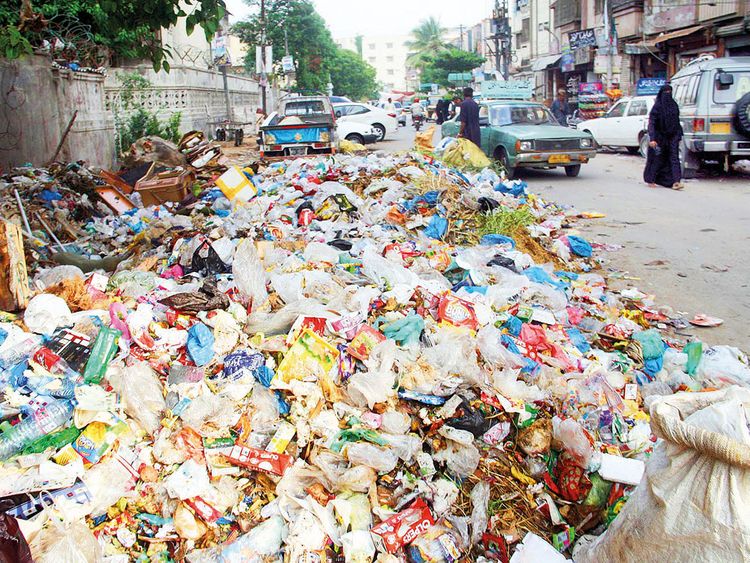Single-use plastic: China to ban bags and other items
China, one of the world’s biggest users of plastic, has unveiled a major plan to reduce single-use plastics across the country.
The restaurant industry will be banned from using single-use straws by the end of 2020.
According to bbc’s report, hotels have alos been told not to offer free single-use plastic items by 2025.
The National Development and Reform Commission on Sunday issued the new policy, which will be implemented over the next five years.
This directive is set to take effect by the end of 2020 and trickle down in all cities and towns by 2022.
China has for years been struggling to deal with the rubbish its 1.4 billion citizens generate.

The country’s largest rubbish dump – the size of around 100 football fields – is already full, 25 years ahead of schedule.
According to an online publication ‘Our world in data’ based at the University of Oxford’, in 2017 alone, China collected 215 million tonnes of urban household waste.
It added that China has produced 60 million tonnes of plastic waste in 2010, followed by the US at 38 million tons.
The research published in 2018 said the “relative global picture is similar in projections up to 2025”.
This isn’t China’s first campaign against the use of plastics.

In 2008, the country banned retailers from giving out free plastic bags and banned the production of ultra-thin plastic bags.
Also, in 2017, China announced that it would ban the import of foreign plastic waste.
China is not the only country in Asia that has cracked down against single-use plastics.
Thailand announced earlier this year that single-use plastic bags would be banned in major stores, with a complete ban across the entire country in 2021.
Indonesia’s capital Jakarta also is banning single-use plastic bags in department stores, supermarkets and traditional markets by June 2020.
In Africa, countries like Kenya, Tanzania, Rwanda, and 50 other African countries have banned or partially plastics but the plastic waste debacle has stirred numerous conversations in Ghana.

Meanwhile, various stakeholders including citizens have called on the government to ban plastics to reduce plastic waste.
But at a press conference in July 2019 sought to suggest the government may not ban the use of plastics in Ghana anytime soon.
Minister Environment, Science, Technology and Innovation, Professor Kwabena Frimpong Boateng argued that a ban will not be in the country’s best interest.
“It is crystal clear that plastics pose a major environmental threat, a ban wouldn’t be prudent because Ghanaians heavily depend on it.
According to Prof. Frimpong Boateng, the country rather needs a proper plastic waste management strategy that will drastically reduce plastic waste not ban it.
“Years ago, we were under pressure to ban plastics in Ghana because certain countries in Africa had banned plastics. We think that we should be careful about how we go about it. In banning plastics, we think that a wholesale ban will not be in the interest of Ghana because plastics are used everywhere.
So I don’t think it will be prudent for Ghana to at this particular time ban something like sachet water because a lot of people depend on it. Plastics are not bad therefore we should learn how to manage plastics. When we do that, it will be a good thing for us. So, let’s look at the life cycle of plastics before we take a decision, ” he said to journalists at the conference.
He, however, indicated that the ministry has submitted a plastic policy draft to Parliament for approval.
The Minister during the conference also hinted that the government will soon introduce a plastic levy as a measure of reducing the amount of plastic while generating income for the government.
“The government has now set up the plastic levy. An account has been opened at the Bank of Ghana. With this, people who use plastics will be levied and that small amount of money will be deposited in this account so that it can be used for want we want to do such as plastic recycling, ” he said.



